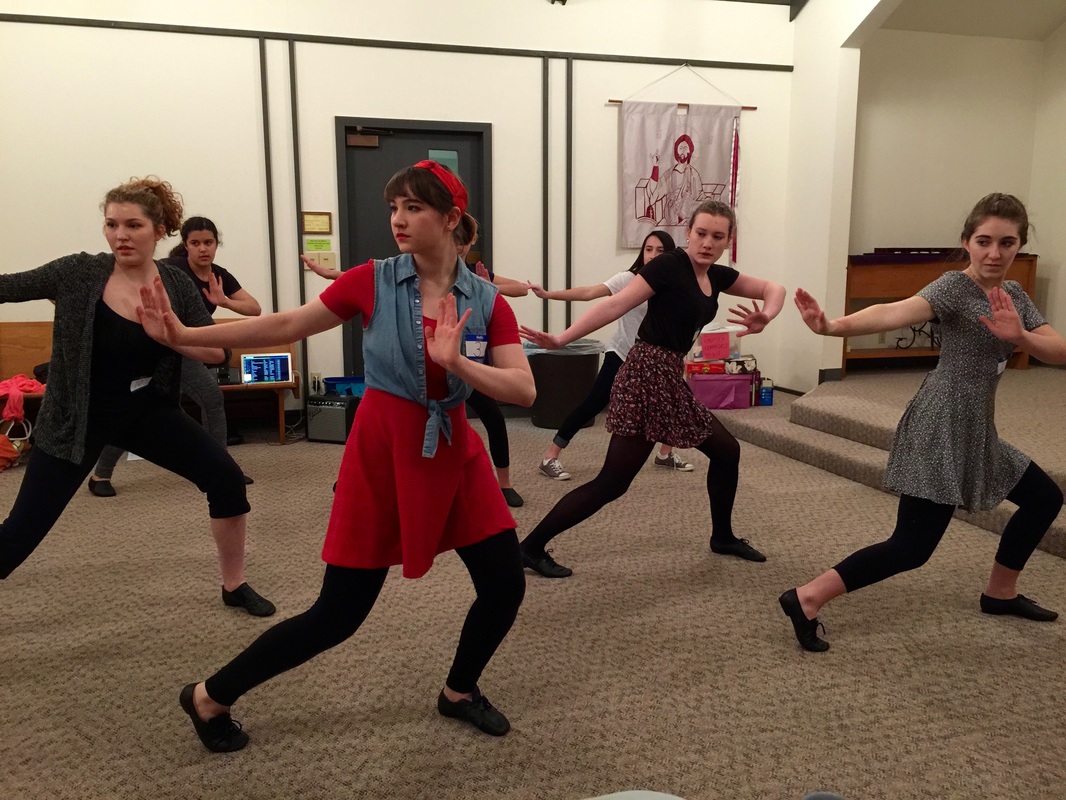
In theatre you will learn there are almost no hard and fast rules, but there are basic norms and trends. If a theatre company is not interested in you for a particular project, you often will not hear anything at all from them. The silence is their decision. Some theatre companies will actually send you a "thank you, but no thank you" email, which can be nice so that you are not left wondering if you are still in consideration.
Anytime you are asked in for a callback it is cause for celebration. That means you did something well enough that they are seriously considering casting you in their show. Congrats! I encourage my students to embrace these successes since there are so much rejection they must learn to accept.
When callbacks are scheduled, the director will often ask you to prepare “sides” from the show. Sides are simply scenes from the play that the director selects to use for auditioning. They will also often ask you to sing songs from the show and will provide the exact cuts they want to hear.
If you are called back for a musical, this is when the dance portion of the audition typically takes place.
Before attending a callback make sure you read the entire script, know the style of the dance and musical numbers and work your songs and scenes with a coach if at all possible.
Some things will be out of your control in the callback process, so just focus on the aspects you can control. That means be prepared, dressed professionally, and all of the other aspects we covered in Part 3 of this audition series blogs.
When reading with scene partners try to make connections with them even if you are all holding scripts in your hands. You will not be expected to be memorized in your sides, but you should be VERY familiar with your lines and cues so that you can actually make acting choices, eye contact and listen to the other actors.
In your dance audition, pay very close attention to the specifics of the choreography while learning it, ask a question or two if you need clarification, and when it comes your turn to dance for the auditors, embody the style of the show and tell the story with confidence. Do not worry if you mess up a bit. Most people do not perfectly learn new choreography in just 30-60 minutes. They will be watching to see if you can pick it up well enough, if you move well and it you can sell it!! Make sure to be expressive and keep your eyes off the floor and straight ahead-not watching what other dancers are doing.
Leave each audition knowing you gave it your best shot and embrace the fact that you just got to do what you love most-performing for a captive audience!
The hardest part for most young performers (and their parents) is waiting to hear if you landed the job. This requires a lot of patience. Again, you may not ever hear anything at all if you are not chosen for a production. You may not ever find out WHY you were not selected. That’s really tough too, especially if you feel like you did a better job than most of the other people at the call back.
Remember how I said some things will be completely out of your control? Final casting decisions frequently come down to elements that you cannot change like height, hair color, strength of your voice etc...
The fact of the matter is, there are more young girls auditioning for theatre than there are young boys. Directors may need to cast their male parts first and frame the rest of the cast around that particular actor. For example, if the children in a show are siblings then they are going to have to be the correct height in comparison to each other to project the visual image of birth order. Also, once one actor in a family is selected the others chosen need to have some physical similarities to that person. I have even heard that certain children were “too strong” of performers to blend in well with the rest of the youth in a cast and it would be imbalanced. Because you cannot do anything to change these aspects of what you bring in to an audition, you need to hold onto the fact that you received the call back which means you are good enough to be cast in the production, but that may not be what will actually happen.
Theatre, like life, is not always “fair”. In order to make it in this industry, you have to get used to the rejection and disappointments. One way I suggest looking at each “NO” you receive is by reminding yourself that when one door closes, another door opens. I cannot tell you how many times I have found this to be very true in theatre. You may not have gotten cast as one of the orphans in Oliver, but because of that “no” ended up being available to audition for a project that would have conflicted with Oliver-and this time you are up for the lead rather than a supporting role. And you land it! It happens a lot-trust me.
When you are first start auditioning you will likely receive a lot of rejection because you are GREEN. That doesn’t mean you are not talented. The more you audition, the better at auditioning you will become and then you have to play the numbers game. I don’t care how fantastic you are, no one lands every role they try out for. Just stay the course, keep training, and be ready to sail when your ship comes in! BREAK A LEG!
 RSS Feed
RSS Feed